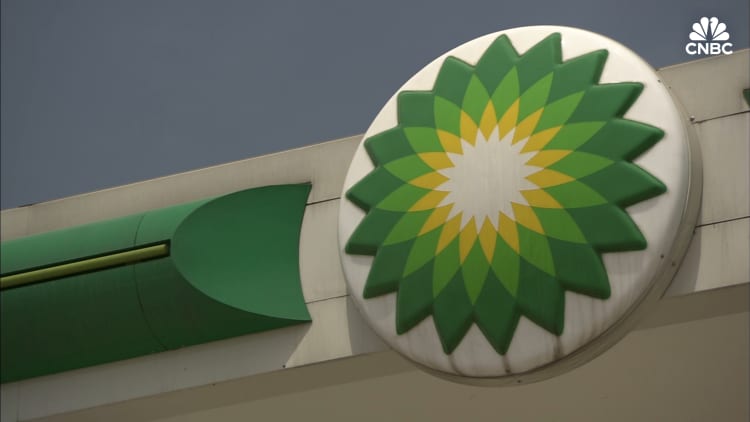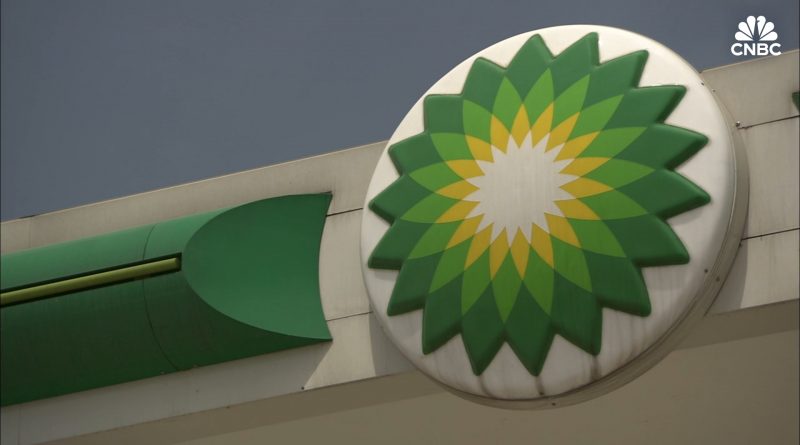BP latest firm to pause Red Sea shipments as U.S. says it will form international coalition to curb Houthi attacks

Oil major BP has joined a growing list of firms pausing shipping through the Suez Canal following a series of attacks on vessels by Houthi militants from Yemen, as the U.S. pledged an international effort to combat the situation.
“In light of the deteriorating security situation for shipping in the Red Sea, bp has decided to temporarily pause all transits through the Red Sea,” the company said in a statement. “We will keep this precautionary pause under ongoing review, subject to circumstances as they evolve in the region.”
During a trip to Israel on Monday, U.S. Defense Secretary Lloyd Austin said the attacks were “reckless, dangerous,” and that they “violate international law.”
“So we’re taking action to create an international coalition to address this threat,” he said. “This is not just a U.S. issue, this is an international problem and it deserves an international response.”
Austin said he was convening a virtual meeting Tuesday with ministers in the region and beyond “to ensure freedom of navigation in the area.”
Norwegian energy firm Equinor told CNBC it had chosen to reroute its ships in the area but had not made a decision on future activity. Oil tanker group Frontline told Reuters it would avoid passages through the Red Sea in the near-term.
Shipping giants MSC, Hapag-Lloyd, CMA CGM and Maersk have also all announced suspensions of travel through the Red Sea due to the drone threat, meaning no access to the key link between Europe and Asia between the Middle East and North Africa.
Houthi attacks
Violence continued on Monday in the Red Sea, with Houthi leaders claiming two attacks.
The U.K. Maritime Trade Organization said it was alerted that a vessel nearly 30 miles out from Yemen’s port of Mokha “experienced an explosion on its port side.” In a separate note, the UKMTO said that it was informed of an incident whereby vessel AST fired warning shots at a craft with armed personnel that was approaching it.
Earlier Monday, U.S. officials told Reuters the M/V Swan Atlantic — a chemical and oil products tanker — was attacked in the southern Red Sea by multiple projectiles launched from Houthi-controlled territory.
Ships will instead take the longer Cape of Good Hope route around the south of Africa.
Analysts say the developments could cause a shock to global supply chains and have significant market implications.
“You are going to see some fairly seismic activity in terms of the implications for supply chains” if all current and expected reroutings are sustained, Richard Meade, editor in chief at shipping journal Lloyd’s List, told CNBC Monday before BP declared its suspension.
Oil prices have already picked up sharply since the announcement, with Brent futures with February expiry up by $2.12 per barrel to $78.67 per barrel at 16:10 London time, while the front-month January Nymex WTI contract was higher by $2.03 per barrel to $73.48 per barrel.
The shipping industry has been unable to avoid getting sucked into geopolitical tensions around the Israel-Hamas war. Iran-backed Houthis have vowed to continue strikes against Israel and ships heading toward Israel until “aggression” in the Gaza Strip stops. The Suez Canal runs through Egypt, which borders Israel to the south.
For Meade, “a lot depends” now on naval protections.
“There is a huge amount of naval presence in the region, and we’re hearing talk of naval escorts. But this is not the same as when we saw naval escorts being deployed to try and resolve the piracy situation in Somalia 10 years ago, it’s much bigger,” he told CNBC’s “Street Signs Europe.”
Also, the threat of aerial attacks requires a “sustained naval presence with fairly sophisticated anti-drone equipment on board,” Meade said, and it is unclear whether the proposals will be enough to see companies reverse course and how soon that might be.
“It’s not just a question of naval escorts. We’re going to have to wait and see what happens in terms of whether there are strikes, I think, in terms of the Houthi threat being eliminated,” he said.
Supply impact
Simon Heaney, senior manager for container research at Drewry, highlighted the major uncertainty facing the shipping industry at present, particularly surrounding how long the current situation will last.
Compounding the pressure on global trade routes is the fact that access to the Panama Canal, another key route, is severely restricted due to low water levels, he noted.
However, he told CNBC by phone that he did not expect as much disruption to supply chains, or as sharp an impact on freight rates, as was seen during the pandemic.
A spike in demand and constrained supply capacity throughout 2020 and into 2021 pushed international freight rates to unprecedented levels — and saw shipping firms report record profits in the process.
But since then, many new ships have been ordered and the situation has recently been one of oversupply.
Current events “change the fundamentals” in the market, Heaney said. “We’ve been in a downcycle, with the market oversaturated with an abundance of ship capacity — so this will come to the rescue for carriers which have a surplus,” Heaney said.
“Too many ships is a good thing because it can cater for these disruptive events.”
For the owners of cargo, however, the current disruption could mean either longer lead times for goods to arrive, or having to pay more to justify carriers traveling faster.
“In shipping there is always an alternative pathway, it will just take longer and time equals cost. However, carriers may opt to travel faster because they will save millions on Suez transit fees,” Heaney said.
“Liners will recalibrate and the worst of the congestion will be in the initial phase while they make this adjustment. Freight rates are going to be on the up again, but I don’t think they will go up as dramatically as before.”
“The potential implications for ocean freight rates and ocean carriers’ profitability will depend on the duration of the disruption,” analysts at UBS said in a note.
They added that the Cape of Good Hope route reduces an Asia-Europe trip’s effective capacity by 25%, and that a large part of Asia-Europe long-term contracts will be negotiated in the coming months, which “may allow the carriers to lock in higher than expected rates – if the disruptions persist.”
Source – CNBC




